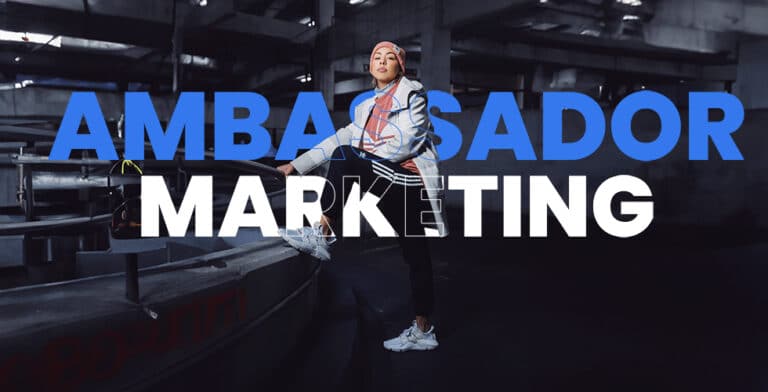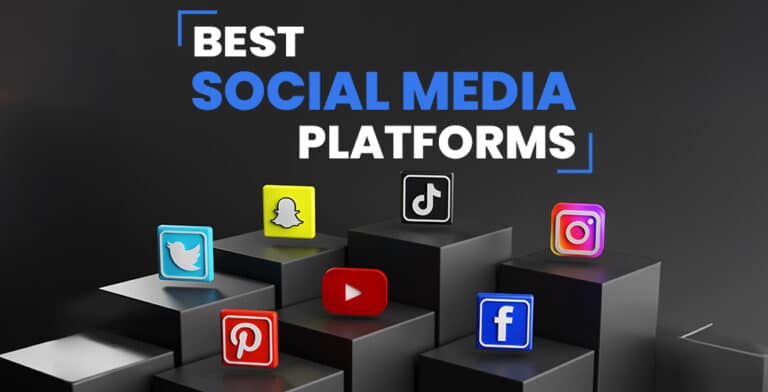Did you know that 93% of marketers use influencer marketing in their campaigns and advertising strategy? A study has shown that the influencer market reached an astounding $13.8 billion in 2021, and this year it’s projected to expand to a $16.4 billion industry. So, there’s no denying that influencer marketing holds great power to drive people toward your brand, product, or service.
When a brand works with an influencer to promote one of its goods or services, it’s called influencer marketing. There are two kinds of influencer marketing: paid and organic. Paid influencer marketing involves paying a popular internet personality for their promotional services, whereas organic influencers already believe in your service or product, so they tend to promote your product for free.
Organic influencer marketing makes engagement more authentic and helps you determine the potential influencer for your brand. Besides, sometimes smaller and average-sized businesses don’t want to spend a ton on a single tweet or an Instagram post. Hence, they leverage organic influencer marketing to their advantage.
How Does Organic Influencer Marketing Work?
An organic influencer marketing strategy mainly revolves around turning influencers into brand advocates. Brand advocates are those people who gush about your brand or product, share your content, engage with you, and post reviews about your offerings without the requirement of any kind of compensation from your end. Anytime an influencer publishes something about your brand that they enjoy without expecting anything in return, is considered to be organic influencer marketing. However, you have less control over the promotional material using this approach.
To establish an effective organic influencer marketing strategy, you need to combine data and analytics with content and storytelling that position your brand or product at the center of relevant conversations with influencers or people that matter. Word-of-mouth promotion eventually leads to efficient organic influencer marketing. And it’s free, but in the sense that you’re not paying any influencer directly to partner with you.
Guide To Organic Influencer Marketing
Building your brand organically through Influencer marketing may take some effort and strategy, but it’s not far-fetched at all. So, here are some steps to guide you through organic influencer marketing.
Select The Influencer Type
The first step is identifying the best influencers for your company. Your company or brand’s objectives and values should align with your influencers. It’s crucial to focus on influencers whose audiences are similar to your potential customers and who you know would like your products.
Next up, you need to figure out whether you want to target micro or macro-influencers. Macro influencers are perfect for bringing awareness and increasing traffic to your brand’s websites, whereas micro-influencers will offer better engagement and create valuable content around your niche.
Finding The Right Influencer
You’re in for a lengthy quest if you want to look for influencers manually on social media networks. Luckily, you can use a variety of monitoring tools to track down the perfect influencer for your brand. With these tools, you can monitor how they communicate and analyze the influencer database, and check to see if influencers are starting or taking part in conversations that mention your brand.
For example, monitoring tools like Hootsuite can help you understand the perception of your brand in the market by giving data on influencers that are mentioning your brand and discovering new influencers in your industry that have not yet interacted with your brand. You can also use real-time alerts to get notified as soon as your influencers mention you or your brand online. You just need to establish a real-time notification for them.

Building Relationship With Influencers
To gain genuine exposure to the influencer’s audience, you must build a real connection with them that will develop into a long-lasting partnership. If you want your brand or product to appear on your selected influencer’s radar, help them increase their engagement rate. Follow them on social media, and by casually engaging with their posts, steadily begin a conversation. Admiring their content but in an appreciative manner so it doesn’t seem forceful. Interact with their post, and give advice. Finally, when someone takes the time to do something for you, say thank you. It’s a small gesture, but it means so much.
Measure The ROI
Measuring the outcomes of your organic influencer campaign is the only method to determine whether it is effective or not. You need to be aware of a few indicators if you want to measure the ROI.
- Campaign Reports: Collect all relevant data and campaign performance indicators for your organic influencer marketing initiatives. Check to see if it is genuinely aiding in your progress. You’ll notice surges in mentions in your monitoring report if your organic influencer marketing campaign is effective.
- Source: From where do you typically receive mentions? Twitter? Blogs? Insta stories? After implementing your organic influencer marketing plan, have you noticed any changes? Keep track of the sources from where you are getting the highest number of tags.
- Share of Voice: How does your brand compare to other companies in the market? What do they do better than you? Has the organic influencer content helped you develop in any way? By answering these essential questions, your brand will be able to identify in which areas it needs to improve and how.
- Sentiment: What impact is your organic influencer marketing plan having on how people view and discuss your brand? Understanding the context of the conversation around your brand is important in order to gauge how people feel about your product or service. If it is positive, then you are doing the right thing. But if it is negative, then take note of the criticisms and improve upon them.
Benefits Of Organic Influencer Marketing
One of the best things about organic influencers is that they will usually be the ones tagging and messaging you on their social platforms, meaning a lot less time has to go into finding, outreaching, and onboarding them. As a matter of fact, organic influencer marketing has a number of advantages. Let’s check them out.
Cost-Effective
The fact that organic influencer marketing requires no financial investment is unquestionably its best aspect. You can get positive outcomes if you implement them correctly. This strategy can be very cost-effective if you focus on organic influencer campaigns rather than having to go down the pain influencer marketing route.
Authentic Content
Organic influencer marketing entails influencers providing you with authentic content via their thoughts, reviews, and genuine opinions about your brand and offerings. Influencers that support your brand without having to receive any compensation from you are a sign that your company’s product or service is worthwhile. An influencer that expresses sincere appreciation towards your brand can go a long way to enrich your brand image as well as sales figures.
Gives Your Brand More Exposure
Organic influencer marketing enables your brand to get exposure by collaborating with content creators. You are also getting connected and known by their followers through organic influencer marketing. Besides, influencers have a significant impact on the decisions made by their followers. Hence, if an influencer portrays genuine satisfaction towards you, it is likely to convert their viewers into customers.
Should You Use Organic Influencer Marketing?
Creating genuine and objective connections with influencers can advance your brand’s visibility, credibility, and authenticity in more ways than you can think of. When an influencer actually likes a product or brand, they frequently end up becoming brand advocates. So, organic influencer marketing is not a gimmick at all. Hopefully, this guide to organic influencer marketing & benefits will show you how to set up your own campaign and what potential benefits you can enjoy from it.




